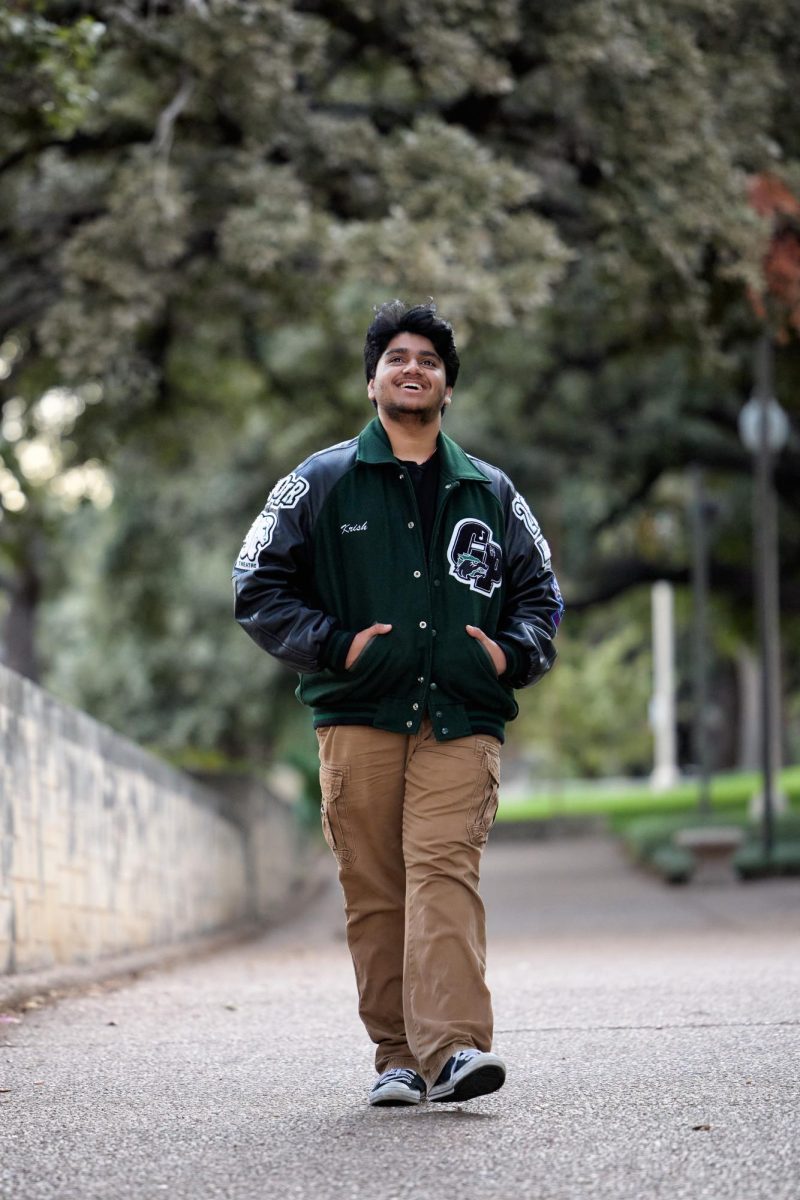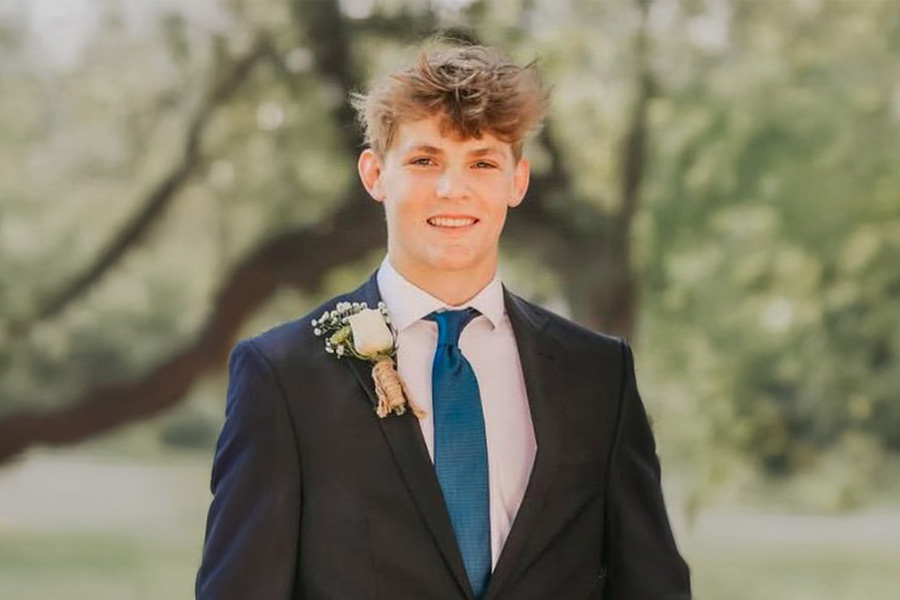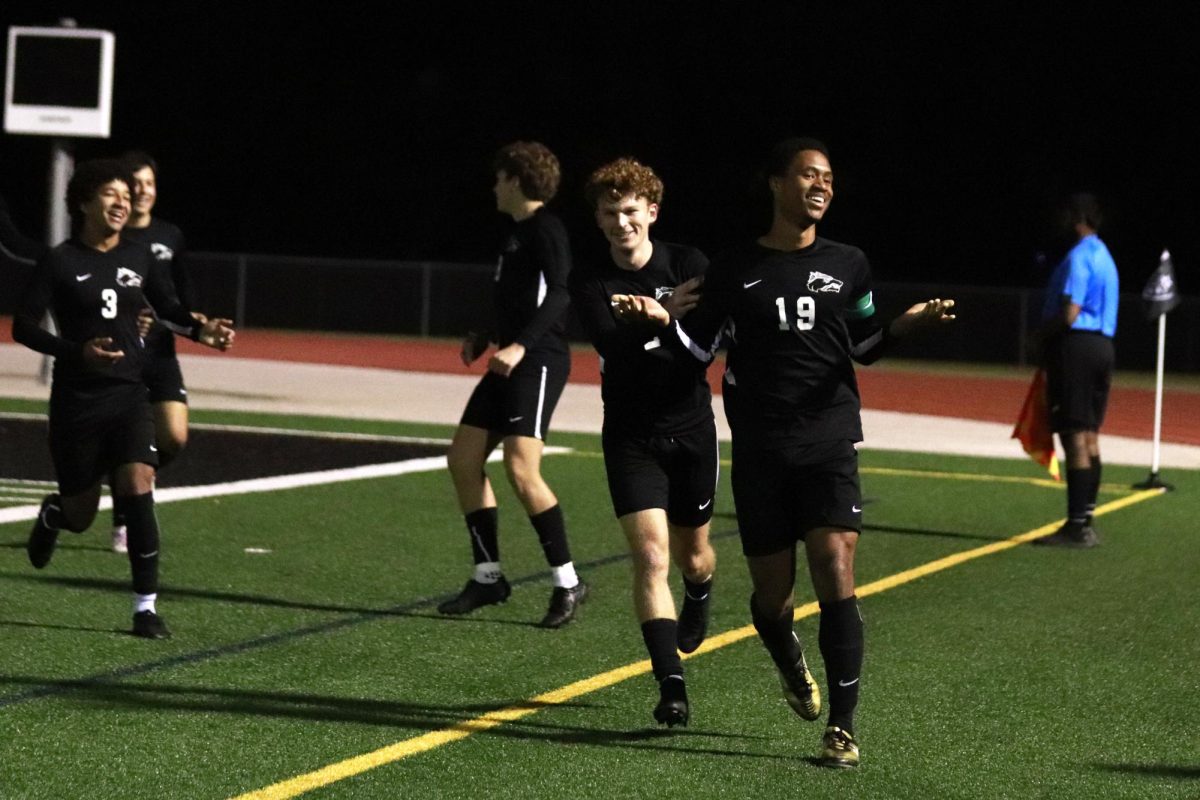Intro by Amanda Weston
A “hate crime” is defined as an assault or any other crime directed at a person of another race or religion. The 2010 National Defense Authorization Act, signed by President Barack Obama October 28 however, has broadened definition of the term to include assaults committed against individuals who are trans-gendered, bisexual and homosexual as well as crimes due to a person’s gender or disability.
The Matthew Shepard and James Byrd, Jr. Hate Crimes Prevention Act was included in the National Defense Authorization Act as a response to hate crimes in current court cases. The act enables the Department of Justice to investigate and prosecute crimes believed to have been motivated by a “person’s actual or perceived race, color, religion, national origin, gender, sexual orientation, gender identity or disability.” The act is named after two victims of hate crimes: Matthew Shepard, a 21-year-old student of University of Wyoming who was beaten and killed October 7, 1998 when he was suspected of being gay; and James Byrd, Jr., a 49-year-old African-American who was beaten and dragged to death in June 1998 by white supremacists. In both cases, neither state had laws that would allow the murders to be persecuted as hate crimes, a problem the act aimed to fix. The bill also provides $5 million annually for the next two years to support investigation and prosecution of hate crimes, and gives federal authorities greater ability to prosecute hate crimes. This act is also the first federal law that extends legal protection to transgender persons.
This act is supported by over 300 groups including law enforcement officials, religious institutions and civil rights supporters. According to the Federal Bureau of Investigation, there has been over 113,000 hate crimes committed since 1991, with 83% motivated by race, ethnicity or sexual orientation. These kinds of crimes that have gone under prosecuted, like the cases of Shepard and Byrd, are the kind that sponsors of the act hope to eradicate with this legislation.
However, some claim this legislation provides unequal treatment for minority groups and that all violent assaults should be classified as hate crimes, not just those committed on a minority-based bias. Some argue that crimes against homosexual individuals should not carry heavier punishments than those committed against heterosexual individuals. Many senators have spoken against the bill, citing novels like Animal Farm and 1984, with the possibility of prosecuting “thought crimes” and double jeopardy.
While the law is already passed through Congress and a part of federal law, this revolutionary act continues to stir controversy. Two of our staff reporters weigh in their opinions regarding the law, and what it could mean for the future of hate crime prevention. The debate continues, In The Ring…
In the Corner on the Right… Leah Mulaly
Despite the lack of hate crime laws protecting homosexuals in 1998, the two defendants in the Shepard case were still charged with felony murder and received life sentences. So why even bother charging the defendants with a hate crime? Murder is murder, no matter what the reason behind it is. Besides, isn’t every murder a crime of hate? Obviously you wouldn’t kill someone you liked, unless it was accidental. Therefore, specific hate crime legislation is unnecessary.
Since the days of the Ku Klux Klan and other openly hateful groups, laws have been enacted to punish bigots who take action against minorities in the form of civil rights amendments, capital punishment and other laws that make assault illegal regardless of the victim’s race or other discernible characteristic. Because these actions are already punishable by law, hate crime legislation essentially punishes thoughts, not actions. The government is not justified in monitoring our minds, and if they start doing so it could open the door for governmental control over other issues.
All crimes covered in the new hate crime legislation are already illegal under previously existing laws that allow for punishment, deterrence, incapacitation and/or rehabilitation for crimes like assault, murder and robbery. This creates a conflict with the Fifth Amendment -protection against double jeopardy- which means that no one can be tried or punished more than once for the same offense. A murderer is already likely to be thrown in jail regardless of who their victim was. For instance, a man is tried for assault is declared guilty and receives five years in jail. Five years later, when the man is out of jail, evidence is found that the man’s intent for the murder was based on discriminatory hatred. If the law of double jeopardy is observed he cannot be tried again, but if the so-called evidence was found at the time of the first trial, he would be given additional punishment. This exact situation happened to a man who was convicted of “aggravated battery”. The maximum sentence is typically two years in jail, but when his jury concluded that he chose his victim specifically because of the victim’s race, his jail time was increased to seven years. The five year difference between these two punishments is unnecessarily large and based almost completely on the man’s prejudices.
Hate crime legislation is not only unnecessary, but a violation of the rights to freedom of religion and freedom of speech. Although spoken offenses are not technically illegal, any speech that appears to encourage a violent act is punishable. This means that people who peacefully speak against homosexuality because of their religious or moral beliefs could be charged with inciting a hate crime, if someone who heard their speech was so “inspired” that they went out and shot a gay man. This legislation could lead to the prosecution and persecution of pastors, small business owners and basically anyone who is adhering to religious beliefs or speaking their mind while not encouraging violence in any way.
President Obama said the legislation will “help protect our citizens from violence based on what they look like, who they love, how they pray or who they are.” Others in favor of hate crime legislation believe that it will alter peoples’ attitudes, making biased people ‘see the light,’ so to speak. They also believe that stronger penalties could deter hate crimes. In addition, hate crime legislation would supposedly allow minorities to experience their freedom of religion and freedom of speech to the fullest, whereas currently the fear of hate crimes intimidates these citizens into remaining silent about their beliefs. However, hate crime legislation proposes the exact same injustice it’s supposed to prevent by violating the 14th Amendment. The legislation guarantees greater protection for minority groups, which creates unequal protection and infringes on the rights of the “majority.” The minority groups are given greater protection against hate crimes but every victim is equally important. In an attempt to make everyone equal, the legislation violates rights and doesn’t stop people from being biased.
Prior to Obama’s amendments, hate crime legislation was unnecessary and posed a threat to freedom of speech, freedom of religion and equal protection under the law. With the recent additions that broaden the definition of a hate crime criminals and even innocent people are more likely to have their rights violated or given extra punishment for their way of thinking.
In the Corner on the Left… Mercedes Ordonez
Whatever your beliefs, murder is not just murder. Previous to this new law, murder was already split up into different categories- voluntary manslaughter versus involuntary manslaughter and then the different degrees of murder, ranging from the accidental third degree to the cold, calculated first degree murder. The Matthew Shepard and James Boyd, Jr. Hate Crimes Prevention Act is simply another step in categorizing murders and their punishments based on the amount of maliciousness and intent of the murderer. This act not only covers fatal incidents, but any crime that harms a victim.
While the expansion of this legislation is a big step in supporting gay and lesbian rights, it is also an important step in PREVENTION – preventing unnecessary killing of innocent victims – just as the legislation’s title suggests. This new act will help prevent unnecessary harm to individuals based solely on their race, sexual orientation, ethnicity or anything else. If the punishments are more severe for individuals who target people based on not who they are, but based on their belonging to a certain group of people, then maybe the number of people targeted will decrease. For example, there is a huge difference between running a person over accidently than chasing a certain person with your car and tearing over them because they have a quality you do not agree with. Hate crime legislation is no different from any other crime legislation; its simple goal is to prevent citizens from being harmed.
My opponent states that this legislation will cause “greater protection for minority groups.” However, how can one say that? Yes, this legislation is focused on including certain subgroups of the population in the current hate crime legislation, but the legislation guarantees protection for anybody targeted, not just minorities. This legislation includes crimes against a person due to their gender, sexual orientation, gender identity or disability. This means if a gay person decides to attack a straight individual based on their sexual orientation they will be charged with the same crime as if it had happened the other way around.
My opponent further argues that this legislation hinders free speech. It does not. Attorney General Eric Holden stated that this act will prosecute violent acts based on bias, rather than persecute speech based on racial or religious views. The aim of the legislation is not to single out those who speak their mind, only to punish those who harm others based on their own personal beliefs. Contrary to what my opponent would have you believe, the hate crime legislation will not punish those who simply are against certain groups, only those who violently act out towards those they are against. Despite what my opponent would have you believe this is not the “thought police,” the United States continues to be a nation with a strong Bill of Rights, protecting the freedom of speech.
It’s not the pastors that are on frantic killing sprees (and if it was, they do need to be severely punished). It’s not violence caused because of vengeance and anger, it is violence based on personal biases. A lot of the time hate crimes are committed for sport, for fun – can you imagine that? Can you imagine ending someone’s life simply because you did not like one of their traits? During the 1940’s, Nazis killed millions of people based on their religion and beliefs. They experimented on human beings as if these children, husbands, mothers, aunts and uncles, were not really people at all. Did they not deserve a harsher punishment? Matthew Shepard, for example, was taken from a bar, hit across the head with a revolver, tied to a fence, beat and then left to die. The people who caused his death were convicted of murder, kidnapping and robbery, a life sentence with no chance of parole. But if it had been another circumstance, would the punishment have been so severe? What if there was no kidnapping or robbery involved? Would these guys, who killed solely for the purpose of killing, have had a chance at parole? While these questions can never be answered, it’s important to realize that we need this legislation to ensure that the harming others for “fun” is severely punished.
Hate crimes are a serious matters and there needs to be more severe punishments for targeting a certain group than just randomly attacking. Our country was founded on the ideals of acceptance and diversity; we have been fighting for freedom for different groups ever since our very first days as a nation.
In 2008, there were over 9,600 victims of a hate crime according to the FBI’s incident report. This does not include the recent additions as to what constitutes a hate crime. For the same year, 51.3 percent of the single biased crimes (crimes based on one bias) were racially motivated. There were thousands of crimes committed against American citizens because someone did not like the color of their skin. Whether someone is white, brown, black or any color in between they absolutely should not be harmed because of this. These 9,000 plus crimes didn’t occur simply because of what the attackers believed or said, but because of the violent acts they chose. If the US does not continue to increase its definition and punishment of this type of crime, then they will continue to increase, causing innocent victims to be hurt.

![Posing with their UIL State Trophy, the Robolobos Van Halen Team beams with excitement after their win. “It was a team effort,” junior Noah Vo said. “I was happy because something happened in the first match and the match was also really close. So [when] they finally revealed it, I was pretty happy.” Photo courtesy of Amy Lovelace](https://cphswolfpack.com/wp-content/uploads/2025/05/IMG_0910-EDIT-1200x723.jpg)

![Broadcast, yearbook and newspaper combined for 66 Interscholastic League Press Conference awards this year. Yearbook won 43, newspaper won 14 and broadcast took home nine. “I think [the ILPC awards] are a great way to give the kids some acknowledgement for all of their hard work,” newspaper and yearbook adviser Paige Hert said. “They typically spend the year covering everyone else’s big moments, so it’s really cool for them to be celebrated so many times and in so many different ways.”](https://cphswolfpack.com/wp-content/uploads/2025/05/edited-ILPC.jpg)













![Bringing her arm over her head and taking a quick breath, junior Lauren Lucas swims the final laps of the 500 freestyle at the regionals swimming competition on date. Lucas broke the school’s 18-year-old record for the 500 freestyle at regionals and again at state with a time of 4:58.63. “I’d had my eye on that 500 record since my freshman year, so I was really excited to see if I could get it at regionals or districts,” Lucas said. “ State is always a really fun experience and medaling for the first time was really great. It was a very very tight race, [so] I was a bit surprised [that I medaled]. [There were] a lot of fast girls at the meet in general, [and] it was like a dogfight back and forth, back and forth.” Photo by Kaydence Wilkinson](https://cphswolfpack.com/wp-content/uploads/2025/03/Kaydence-2.7-23-edit-2.jpg)
![As the support team sits and poses for a photo in the cafeteria with the counseling team they eagerly wait to start their day. "We [all] seem to be a team, I get up every day and there's days where I don't want to go to work today, but I'm thankful that I have a job and I'm blessed to have what I have," Christopherson said. Photo Courtesy of Julie Weltens.](https://cphswolfpack.com/wp-content/uploads/2025/01/AF9E8470-10D7-4C91-BF28-EC8F86BAB66C-1200x852.jpeg)
![Officer Stephanie Cash is in her second year as an SRO at CPHS. “Seeing [students] grow over the years has been kind of cool,” Officer Cash said. “Freshmen that [are] all over the place and then in the next couple of years get a little more squared away and go to class and do work and start thinking about the future. Being a part of a student's growth is the best way to measure my success as an SRO.” Photo Courtesy of Cedar Park Police Department's PIO, Alicia Gallagher.](https://cphswolfpack.com/wp-content/uploads/2024/12/CPHS-SRO-900x1200.jpg)



![Taking a breath as he raises his arm up and out of the water, sophomore Kaden Padilla swims the 500 freestyle at the UIL state meet on Feb. 21-22. Padilla placed 10th overall and second in the consolation final in the event, dropping two seconds. “My family was there, so being able to drop time for them was really special,” Padilla said. “It was awesome [finding out I advanced to the consolation finals]. I wasn’t expecting it, and I was very surprised. My parents being there definitely made me a lot happier knowing they got to see me swim in finals.” Photo by Skyler King.](https://cphswolfpack.com/wp-content/uploads/2025/03/kaden-padilla.jpg)

![Three defenders try to stop senior point guard Hope Edwards before the ball leaves her hands. The girls basketball team faced Liberty Hill on Feb 21, losing 58-40. “[My season was] definitely bittersweet,” Edwards said. It's definitely sad [because] I'm gonna miss all my teammates, my coaches and just the whole CP environment.”](https://cphswolfpack.com/wp-content/uploads/2025/03/julia-128-1200x800.jpg)













